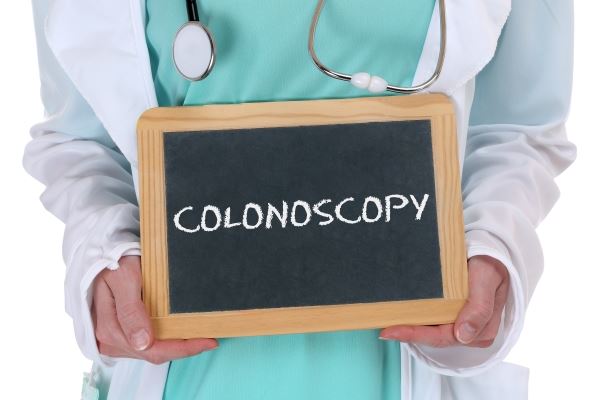March is Colorectal Cancer Awareness Month and it's important for you to know that 1 in 20 people will be diagnosed with colorectal cancer and 1 in 3 of those people are not up-to-date with colorectal cancer screenings. Also, 60% of deaths from colorectal cancer can be avoided with proper screenings; one of those screenings is a colonoscopy.
While most people crinkle up their nose at the idea of a colonoscopy, it turns out they have improved throughout the years. What keeps a lot of people from having one, is the notion of how 'terrible' they are and how bad they are to get ready for - which is an outdated stereotype. Read on to get the full scoop on the scope.
What’s a colonoscopy?
A colonoscopy (pronounced koe-lun-OS-kuh-pee) is a screening test used to identify changes and pre-cancerous growths (polyps) in the large intestine (colon) and rectum.
The non-invasive test usually takes around 30 minutes and the patient is given a relaxing/sedating medicine that makes them drowsy, or fully asleep. A long, flexible tube (colonoscope) is inserted into the rectum, which doesn’t hurt. A tiny video camera at the tip of the tube allows the doctor to view the inside of the entire colon. If identified, sometimes polyps or other types of abnormal tissue may be removed through the scope during a colonoscopy. Tissue samples (biopsies) may also be taken during the procedure as well.
Who needs one?
*Adults age 45-75 who haven’t had one in the last 10 years.
(*It’s recommended that adults ages 45 to 75 be screened for colorectal cancer. A colonoscopy is recommended every 10 years for those who are not at high risk. People at who are at an increased risk of getting colorectal cancer (family history or certain medical conditions) should speak with their doctor about screening recommendations. The decision to be screened after age 75 should be made on an individual basis. If you are older than 75, ask your doctor if you should be screened.)
Why is a colonoscopy important?
It is the best defense against colon and rectal cancer. It is essential in preventing colorectal cancer because precancerous polyps can be found and removed during the exam that would otherwise go undetected. Colon cancer is one of the few cancers that can be prevented, although a colonoscopy may not sound enjoyable, it is much simpler and more tolerable than developing cancer.
What is a ‘polyp’?
Colon cancer often begins as a small, clump (polyp) of noncancerous cells but over time this clump can become cancer. And, there are usually few, if any, symptoms from colon cancer. Colonoscopies identify and remove polyps before they turn into cancer.
How’s the “prep” for a colonoscopy?
It’s not like it used to be. Yes, there are some negative stereotypes around colonoscopy prep. These usually come from people who have had the procedure years ago, but the process has since changed. The patient will need to drink clear liquids (usually Gatorade) and laxative the day before the procedure. People tend to be more apprehensive about the prep than the actual screening but it’s all very simple and will not usually take the patient out of their day to day routine.
What happens afterwards?
After the test, patients are a little groggy from the sedative and require a driver to get them home. They can go back to their normal eating and other activities. Sometimes people may be tired from the sedation and need to rest for a few hours. Occasionally, patients experience gas following the procedure. The doctor will review and contact you with the results.
Does my insurance cover a colonoscopy?
Most insurance plans and Medicare help to pay for colorectal cancer screenings for those who qualify within the screening recommendations. For more information about Medicare coverage visit www.medicare.gov or call 1-800-MEDICARE. Patients should check with their individual insurance plan to find out what benefits are covered for colorectal cancer screenings.
Don’t wait – now is the time! Call 317.392.2967 to schedule or click here to complete a form to request a colonoscopy.
Eligible patients who schedule a colonoscopy at MHP in March will receive a FREE cooler & prep kit! (Valued at $150)
